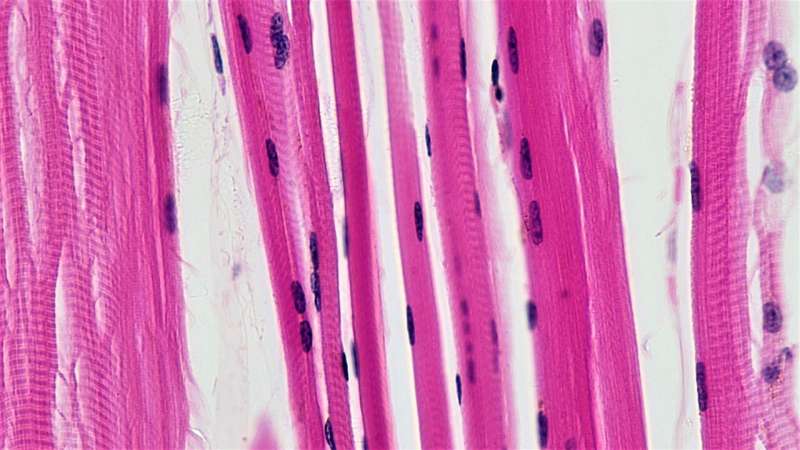This will help to solve the puzzle of why muscles get weaker with age and look at ways to prevent the process.
Muscles lose mass and strength as people age and this can affect the ability to carry out everyday tasks and causes a range of problems, including an increased risk of falling and longer recovery times from injuries.
Professor Malcolm Jackson, from the University of Liverpool, said: "Aging is one of the greatest challenges of the 21st century and we will learn a great deal about how muscle responds to microgravity and aging from the data we obtain from this study.
"The team has had to work extremely hard over the last three years to overcome the many challenges of sending our science into space.
"For example, the electronic equipment necessary to undertake these studies usually fills a large desk but we have managed to shrink this to the size of a pack of cards.
"This development work on automated and miniaturized systems represents an exciting innovation that could have a wider application in the future."
Kayser Space, based at the Harwell Space Cluster in Oxfordshire, designed and built the scientific hardware to accommodate the muscle cells to ensure they survive the potential changes in temperature, vibration and G-force during launch.
Science Minister George Freeman said: "The research of our scientist astronauts like Tim Peake on muscle loss in the microgravity of space is helping identify potential cures for musculoskeletal disease, which causes agony to millions and costs the NHS billions.
"By harnessing the unique environment of the International Space Station our pioneering scientists could help us all live healthier, stronger lives."
MicroAge is due to launch on a SpaceX Falcon 9 rocket from the Kennedy Space Center, Florida, at 1000 GMT on Tuesday.
The experiment will return to Earth in January 2022 for further analysis.
As part of the mission, the 24 muscle cell containers that are being sent to the ISS will carry mission patches designed by children, following a competition run by the University of Liverpool.
People can keep up to date with the progress of the study through a MicroAge App.
Explore further
©2021 dpa GmbH.
Distributed by Tribune Content Agency, LLC.



